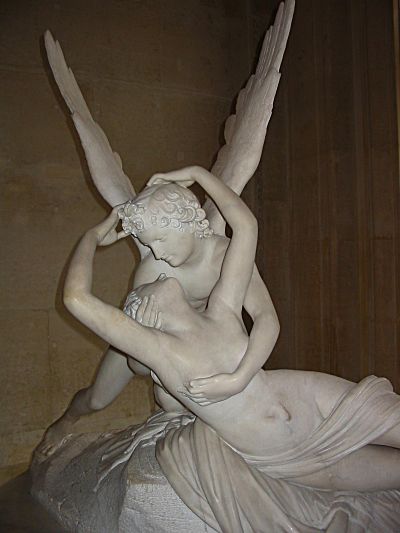There is so much I want that I cannot have. What is to be done?
We often confuse who we are with our desires. Desire is very powerful, but philosophers from Plato to CS Lewis have understood that reason must govern desire. What I want is not necessarily what I should want.
This is obvious in my own life. For whatever reason, I want to eat more than I need to eat. This is not good for my physical health, but it is also not good for my spiritual health. It is not a matter of vanity, but of moderation.
I cannot preach about being temperate and have all the comfort food my body craves. Once poverty protected people such as I am from over indulgence, but now I must learn virtue. God forbid that I become proud of my lack of control . . . as if “who I am” is good merely because it is “who I am.”
Food is not bad. Enjoying a feast is fabulous, but a passion for food is horrid. Passion is a drive that overcomes morals, reason, and other desires. Passion claims priority even when other actions would be better.
There are wise words in the Fathers:
- He whose God is his belly and who prides himself on his ignominy as if it were something splendid (cf. Philippians 3:19) is merely cleaving to the shameful passions as if they were divine. Because of this he pursues only what is temporal, that is to say, matter and form and the perverted impulses of the five senses. When the senses combine with matter and form they produce passion, killing and effacing natural principles. For, in accordance with the principles of being, passion and nature in no way co-exist with each other: the principle of nature is never naturally conjoined with passion, and passion is never coengendered with nature.
Dieting can make me spend more time thinking about temporal things than eating! I become vain about losing weight and spend large amounts of time looking at the scale and my step count on Fitbit. Meanwhile, spiritual things are ignored.
Passion is not mere emotion, but a desire so deep we confuse it with what we are. How do we know it is not what we are? Because I can not do what passion demands and still exist and with practice can be happy without submitting . . .
My passions, either directed toward dieting or directing toward eating, destroy my best self if not restrained. We are spiritual beings and not merely physical. I must learn to acknowledge desire, repress and hide nothing, and then move past desire.
My passions must die so my nature can live. This is not a call to be emotionless, but to be driven by reason, love, and nature. Passion does not care what should be, what is loving, or natural. Passion wants what it wants. My emotions, true feelings, are hidden under a drive for something. Only when I have mastered passion can I have feelings.
Plato describes the passions as a great monster within us. Paul associates our passions with the “old man” that is death to the immortal soul.
The good news is that passion can be mastered, though it is very hard. I have made some progress in saying “no” to urges and “yes” to what best reason, revelation, and experience demands. I can live as a spiritual man in a body . . .and so know joy.
—————————————
Philokalia, Volume 2, page 266
Κεφάλαια διάφορα Θεολογικά τε και Οικονομικά και περί Αρετής και Κακίας, ΕΚΑΤΟΝΤΑΣ ΠΕΜΠΤΗ
κη΄. Ὁ Θεόν τήν κοιλίαν ἡγούμενος, καί ὡς ἐπί δόξῃ τῇ αἰσχύνῃ καλλωπιζόμενος, μόνων οἶδεν ὡς θείων ἀντέχεσθαι διά σπουδῆς τῶν παθῶν τῆς ἀτιμίας· καί διά τοῦτο μόνα περιέπει τά χρονικά, τουτέστι τήν ὕλην καί τό εἶδος, καί τήν κατά παράχρησιν πενταπλῆν ἐνέργειαν τῶν αἰσθήσεων. Τῇ γάρ ὕλῃ καί τῷ εἴδει συμπλακεῖσα κατά μίξιν ἡ αἴσθησις, ἀποτελεῖν μέν πάθος, ἀπεκτείνειν δέ καί ἀναιρεῖν τούς κατά φύσιν πέφυκε λόγους. Πάθος γάρ καί φύσις κατά τόν τοῦ εἶναι λόγον, οὐδαμῶς ἀλλήλοις συνυπάρχουσιν. Οὐ γάρ πέφυκε πάθει ἐμφαίνεσθαι τοπαράπαν φύσεως λόγος, ὥσπερ οὔτε φύσει συναποτίκτεσθαι κατά γένεσιν πάθος.












